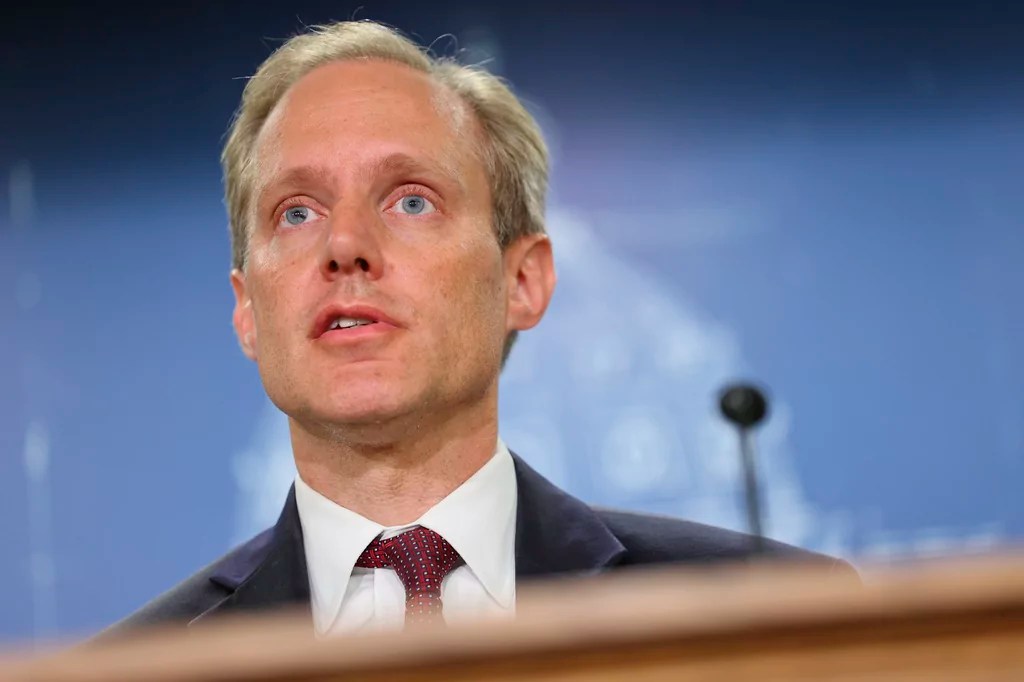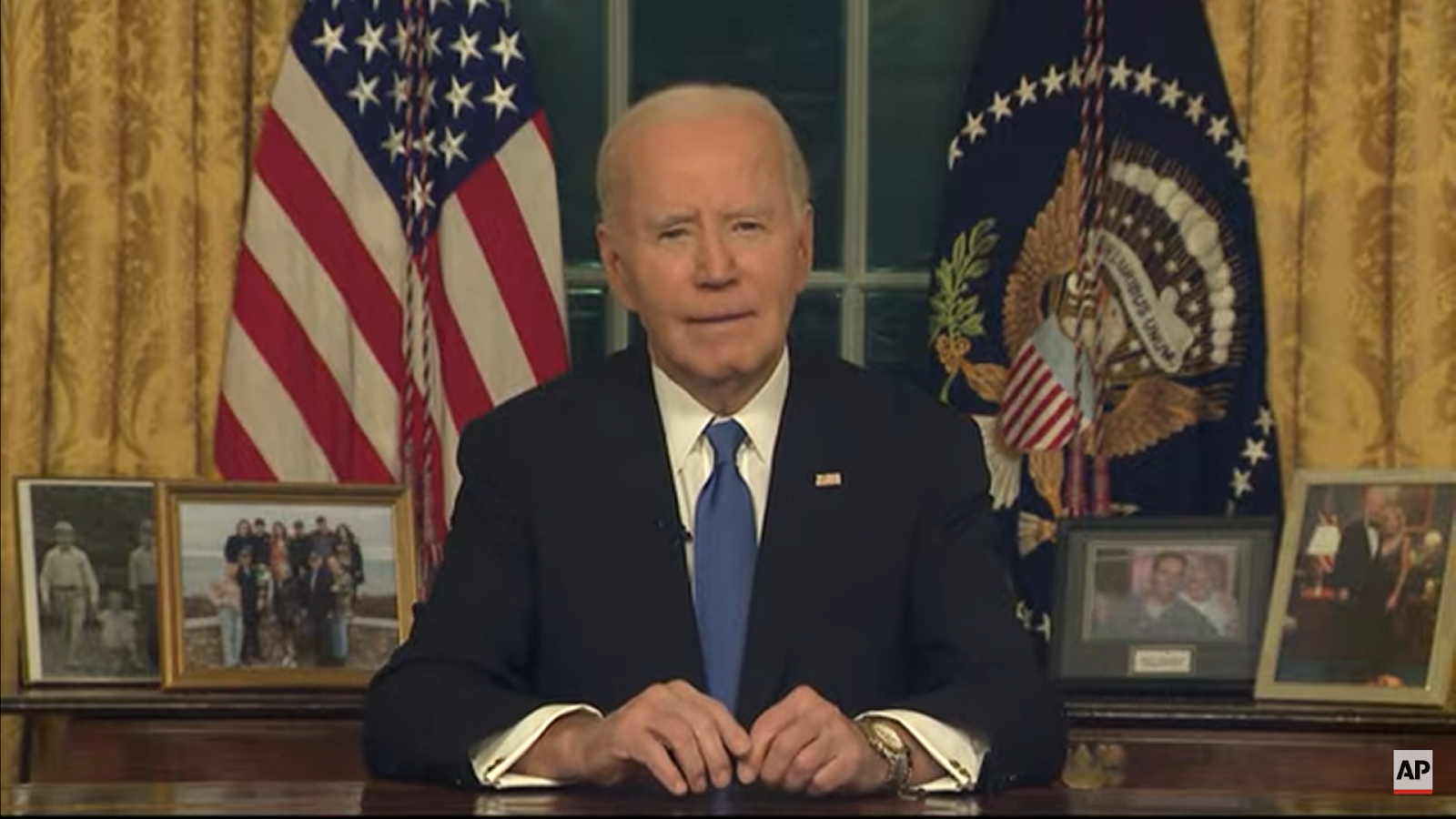House approves initial appropriations bills before shutdown deadline
The House Takes First Step to Avoid Government Shutdown
The House of Representatives made a significant move on Wednesday by passing the initial portion of its annual appropriations bills. This crucial step aims to prevent a government shutdown that is looming over the weekend.
The spending bill received an impressive 339-85 vote, surpassing the two-thirds threshold required to advance in the lower chamber. House Democrats played a pivotal role in securing its passage, countering the 83 Republicans who voted against the measure and ensuring the funding bills crossed the finish line.
“If there’s one thing consistent within the 118th Congress, it’s that Democrats are the only adults in the chamber,” Democratic Caucus Chairman Pete Aguilar (D-CA) said ahead of the vote on Wednesday.
This legislation, known as the “minibus” legislation, consolidates funding for six essential spending bills that the government must pass before the impending shutdown deadline. It adheres to the previously negotiated $1.59 trillion topline number agreed upon by House Speaker Mike Johnson (R-LA) and Senate Majority Leader Chuck Schumer (D-NY) earlier this year.
The minibus, which covers government funding for the remainder of the fiscal year, includes allocations for Agriculture, Military Construction and Veterans Affairs, Transportation, Housing and Urban Development, Energy and Water, Interior and Environment, and Commerce, Justice, and Science.
The other six appropriations bills are set to expire on March 22.
The proposed bill incorporates various spending cuts, such as a 10% reduction in funding for the Environmental Protection Agency, a 7% decrease for the Bureau of Alcohol, Tobacco, Firearms and Explosives, and a 6% decrease for the FBI.
Republican leaders are touting the bill as a victory for their party, highlighting several policy provisions included in the final text.
One notable win is a provision that would prevent the Department for Veterans Affairs from reporting a veteran to the FBI’s National Instant Criminal Background Check without obtaining consent from a judge, a significant policy triumph for Republicans.
However, some conservatives opposed the bill due to the inclusion of several earmarks in the final legislation. The minibus encompasses over 6,000 earmarks worth more than $12.6 billion, which are currently facing challenges in both the House and Senate.
Conservative Republicans in the House also rejected the bill based on the negotiation process. The minibus legislation was crafted behind closed doors by party leaders, and the text was only made available on Sunday afternoon, leaving lawmakers with a mere three days to review the 1,050-page proposal.
“Even in the face of $34.4 trillion in national debt, the omnibus will bust the bipartisan spending caps signed into law less than a year ago and is loaded with hundreds of pages of earmarks worth billions,” the House Freedom Caucus stated on Tuesday. “Despite giving Democrats higher spending levels, the omnibus text released so far punts on nearly every single Republican policy priority.”
The spending bill will now proceed to the Senate for a vote before reaching President Joe Biden’s desk for his signature. If even one senator objects, it could potentially delay the bill’s passage for several days before it is brought to the floor for a final vote.
The government is scheduled to enter a partial shutdown at 12:01 a.m. on Saturday.
How can lawmakers in the House and the Senate work together to ensure the timely passage of the remaining appropriations bills and prevent a government shutdown
In funding for the Environmental Protection Agency and a freeze on hiring at the Internal Revenue Service. It also includes additional funding for domestic violence prevention programs, community health centers, and wildfire suppression efforts.
The passage of this initial portion of the appropriations bills is a critical milestone in avoiding a government shutdown. With the deadline fast approaching, it is imperative that both the House and the Senate work together to ensure the smooth passage of the remaining appropriations bills.
However, despite the progress made in the House, the fate of the spending bills in the Senate remains uncertain. Senate Republicans have expressed concerns over the substantial funding levels and have hinted at potential amendments to the bill. Without bipartisan support in the Senate, the appropriations bills may face additional hurdles that could jeopardize their timely passage.
In order to avoid a government shutdown, it is crucial for lawmakers to rise above party politics and prioritize the needs of the American people. The funding provided by these bills is essential for the functioning of various government agencies and programs that directly impact the lives of millions of citizens.
A government shutdown would have detrimental consequences, including the furlough of federal employees, delayed services, and a negative impact on the economy. It is therefore imperative that lawmakers put their differences aside and work towards a bipartisan agreement that ensures the continued operation of the government and the provision of essential services.
As the appropriations process moves forward, it is important for both the House and the Senate to maintain open lines of communication and engage in constructive dialogue. Compromises may need to be made in order to bridge the gap between the two chambers and ensure the timely passage of the remaining appropriations bills.
The House has taken a significant first step in preventing a government shutdown, but there is still much work to be done. The American people are counting on their elected representatives to act responsibly and put the needs of the country first. It is now up to the Senate to follow suit and work towards a bipartisan agreement that will avert a disastrous government shutdown.
" Conservative News Daily does not always share or support the views and opinions expressed here; they are just those of the writer."





Now loading...